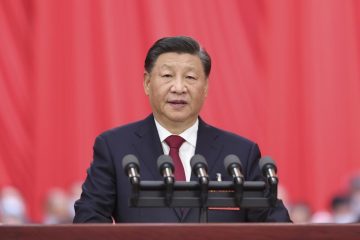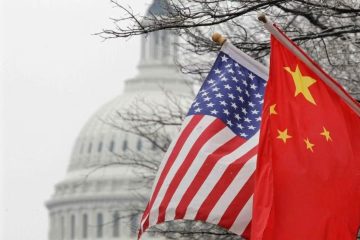Musk’s 130-day DOGE tenure: successes and failures

Elon Musk has declared his intention to resign from his position as the head of the Department of Government Efficiency (DOGE), a role he occupied during the administration of President Donald Trump. As he concludes his tenure after 130 days, the public discourse intensifies regarding the actual achievements of the initiative.
The Department of Government Efficiency (DOGE) was established by Executive Order 14158 on January 20, 2025, with the objective of modernizing federal operations, reducing wasteful expenditures, and streamlining bureaucracy. Emerging from discussions between Trump and Musk in 2024, DOGE was designed as a high-tech reform initiative aimed at transforming the operations of Washington while reducing expenditures. Musk was appointed as a “special government employee” for 180 days, during which he led DOGE with an ambitious promise: to reduce federal spending by $2 trillion and “end the tyranny of bureaucracy.” Former Republican presidential candidate Vivek Ramaswamy has been appointed to spearhead this initiative. While Ramaswamy promptly stepped down to pursue the governorship of Ohio, Musk continued to embody the persona of DOGE.
Musk asserted that DOGE had resulted in a $150 billion savings for the government by addressing issues of waste, fraud, and inefficiency. In a farewell message on his platform X, he expressed gratitude to Trump for the opportunity provided. He highlighted a 12 per cent reduction in the federal workforce, approximately 260,000 jobs, as an indicator of advancement. Over two million government employees received offers for voluntary buyouts. According to DOGE’s own figures, savings reached $160 billion by late April. Musk contended that these outcomes were realized through the elimination of “crazy” diversity contracts, the dismantling of foreign aid programs, significant staff reductions, and a focused effort on addressing fraud and redundancy.
Nonetheless, both watchdogs and analysts have raised concerns regarding the accuracy of Musk’s figures and the validity of his methods. According to a BBC analysis, while DOGE asserts a total of $160 billion in savings, only $61.5 billion has been publicly itemized, with merely $32.5 billion backed by supporting documentation. Moreover, detractors contend that the savings have been achieved at a significant cost. DOGE’s significant workforce reductions have interrupted essential services and initiated legal disputes. Judicial authorities have impeded certain actions, notably restricting access to sensitive treasury information, on the grounds of constitutional considerations. Lawsuits initiated by unions, watchdog organizations, and state officials allege that DOGE has circumvented Congressional oversight and operated with excessive opacity.
The agency faced accusations from Democrats regarding its alleged overreach of constitutional boundaries through the reduction of budgets that Congress had previously sanctioned. Musk’s leadership emerged as a focal point of contention, attracting criticism from both Democrats and segments of the Republican base, amid rising apprehensions regarding the department’s stringent cost-cutting measures and insufficient legislative oversight.
Musk’s engagement with DOGE has elicited significant criticism from Tesla investors. Major shareholders, including pension funds, attributed a 71 per cent decline in Tesla’s quarterly profits and a 13 per cent decrease in sales to his divided attention, insisting that he dedicate a minimum of 40 hours per week to the company or resign from his position as chief executive. Concurrently, the ‘Tesla Takedown’ movement has been gaining traction, as protests have erupted at Tesla stores throughout the US and Europe, calling for a consumer boycott in response to Musk’s political engagements and DOGE-influenced federal budget reductions. Tesla’s European sales experienced a significant decline of 49 per cent, intensifying apprehensions among investors. Public sentiment regarding Musk has deteriorated. A Pew poll conducted in February indicated that 54 percent of Americans hold an unfavourable view of him, with 37 percent categorizing their opinion as “very unfavourable”.
In an unexpected development, the Trump administration in February asserted that Amy Gleason was officially overseeing the DOGE, even though Elon Musk is generally regarded as its public figurehead. This announcement emerged in the context of inquiries regarding Musk’s official position and apprehensions surrounding possible conflicts of interest. However, President Trump later clarified that Musk remained central to the DOGE initiative, referring to him as the “visionary” behind the effort. Amy Gleason, a healthcare technology executive with previous roles in the US Digital Service and the White House Covid-19 data team, was formally designated as the administrator of the department. The contradictory signals regarding the actual authority within the department have engendered public bewilderment and heightened apprehensions regarding transparency and oversight.
The achievements:
- Significant expenditure reduction initiatives
- Structural adjustments in specific departments
The critique:
- Exaggerated assertions regarding savings
- No observable enhancement in public services
- Legal actions, demonstrations, and significant public opposition
During a press conference on May 1, Musk recognized that DOGE’s performance did not meet his $1 trillion target, stating, “In the grand scheme of things, I think we’ve been effective.” Less effective than I would prefer… It is achievable; however, it necessitates addressing numerous grievances. He attributed the constraints on deeper cuts to institutional resistance and the political pain thresholds that exist.










